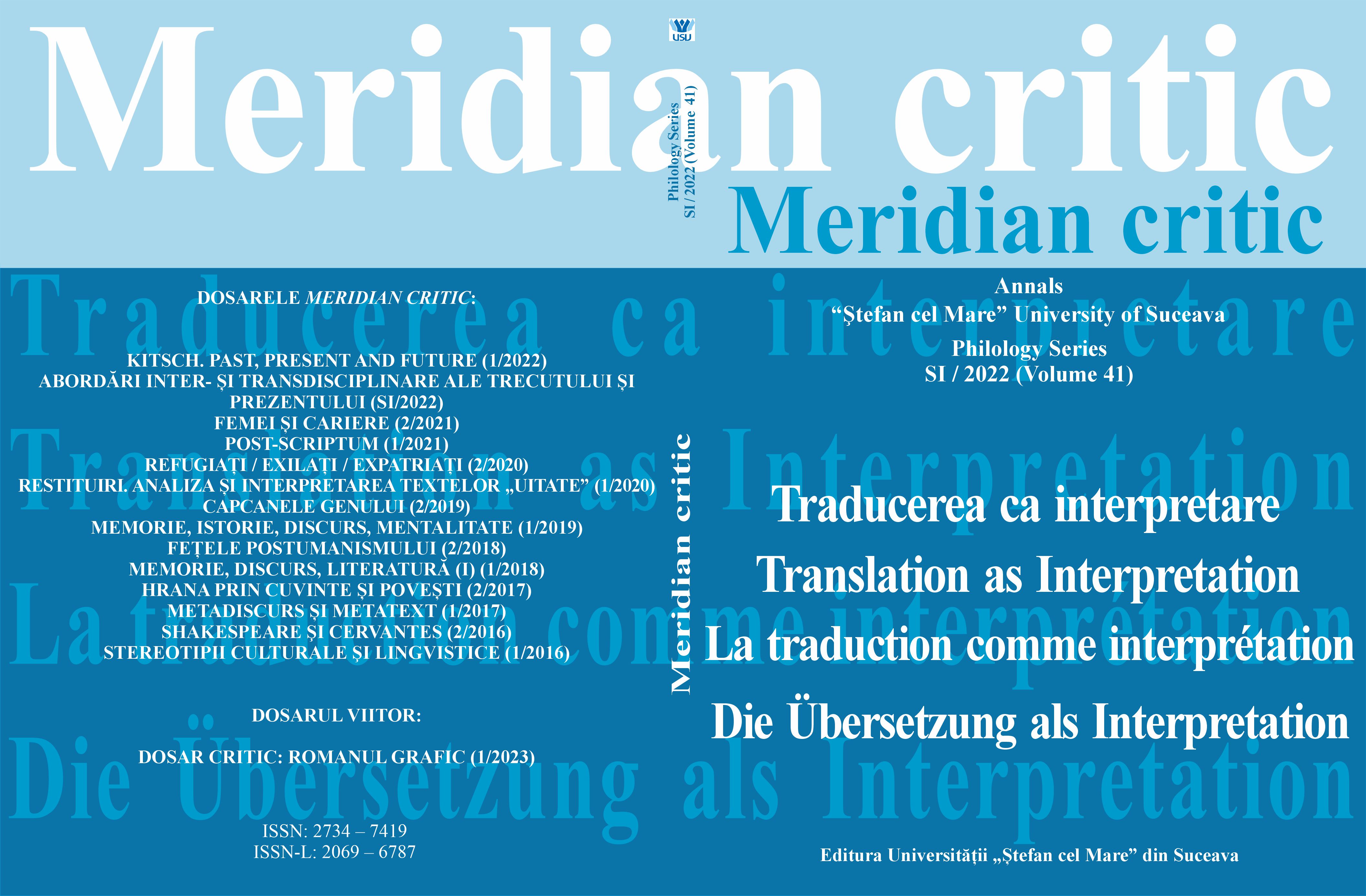“Possedere il dominio di due lingue è come se vivessidue vite in una.” La testimonianza di Matei Vişniec alla GiornataEuropea delle Lingue
“Mastering Two Languages Is Like Living Two Lives in One.” Matei Vişniec’s Testimony at the European Day of L
Author(s): Emilia DavidSubject(s): Language and Literature Studies, Studies of Literature, Translation Studies
Published by: UNIVERSITATEA »ȘTEFAN CEL MARE« SUCEAVA
Keywords: Matei Vișniec; literary bilingualism; multilingualism; censorship; uprooting; estrangement; act of translation;
Summary/Abstract: The following pages include a testimony of Matei Vişniec on the occasion of the writer’s participation in the European Day of Languages, on 26 September 2020, as a guest of the Romanian Language and Literature discipline of the University of Pisa. His discourse contributed to the more general reflection, shared by various linguistic and literary disciplines of the Department of Philology, Literature and Linguistics (FiLeLi), on which the event focused, in a transversal and interdisciplinary perspective: the literary bilingualism and multilingualism of writers who have suffered the rigors of political power – censorship and the most diverse forms of uprooting and estrangement, triggered by the tragedies of the twentieth century, such as the holocaust, the totalitarianisms of Central and Eastern Europe, Nazism, fascism, etc.The 2019 edition was very successful, since the European Commission was the protagonist in Pisa. In 2020, among the seven protagonists of the initiative there were present leading contemporary writers, bilingual and plurilingual, together with many scholars. The Romanian French writer expressed his capacity as a witness and a privileged interlocutor in contemporary Romanian culture with the purpose of illustrating the theme of the event, as well as of testifying, in the first part, to his experience as a young writer at the time of censorship and his fascination when confronted with two languages that seduce him and by which he feels seduced. In the second part, the poet reserved an extraordinary performance for the participants, reciting his renowned poem Corabia (The ship), a poetic text with an evident political substratum. The above-mentioned literary pièce contributed, as the author himself recounts, to the interdiction of the famous “Cenaclul del Luni” (“The Monday Literary Circle”), in which the so-called ‘80s Generation, including our writer, had launched themselves. Vișniec reflected on the relationship that a bilingual writer establishes with his mother tongue and with both languages – that of his writing and that of his existence. He characterized the idioms in which he expresses himself in a contrastive approach, revealing the care for poetry, the semantic and stylistic richness above all the results present in his self-translations into Romanian, and, in a more general meaning, the act of translation, in which poetry must remain an essential element also of his theatre.
Journal: Meridian critic
- Issue Year: XLI/2022
- Issue No: SI
- Page Range: 33-42
- Page Count: 10
- Language: Italian

